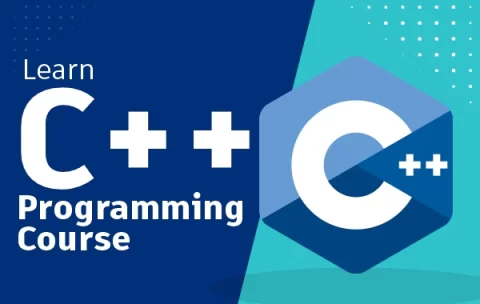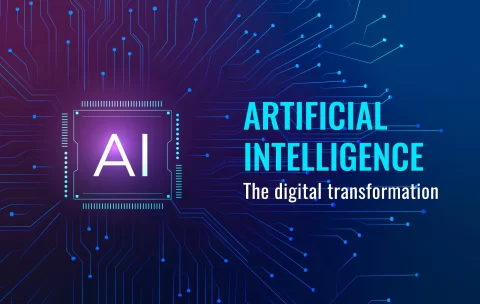Filter by Topic
Filter by Vendor
Advanced C++ 20 Programming (TTCP2175)
Geared for experienced C++ developers, Advanced C++ 20 Programming / …
What you'll learn
<b>Become a Pro at SOLID Design:</b> You'll delve into SOLID design principles, mastering how to write clean, maintainable code. By the end, you'll be able to identify and avoid design smells, enhancing the overall quality of your projects.
<b>Master the Art of Factory Implementation:</b> Get hands-on with factories in C++. We'll guide you through the basics and options, including Singleton, to help you understand the critical role of factories in object-oriented design.
<b>Up Your Game with Operator Overloading:</b> You'll learn about operator overloading and its applications. By understanding how to enhance the readability and flexibility of your code, you'll streamline your programming tasks.
<b>Unlock the Power of Templates:</b> We'll dive into the intriguing world of templates, exploring variance, concepts, and the 'auto' keyword. You'll get to implement covariant and contravariant templates, broadening your C++ expertise.
<b>Ace Multithreading and Asynchronous Programming:</b> We'll explore the realms of multithreading and asynchronous programming, equipping you with the tools to create efficient, high-performance applications. You'll get to practice with mutexes, semaphores, atomics, and coroutines, gaining invaluable experience for your future projects.
Introduction to C++ Programming (TTCP2100)
Introduction to C++ Programming Essentials is a four-day, hands-on course …
Data Science & Big Data Overview: Tools, Tech & Modern Roles in the Data Driven Enterprise (TTDS6000)
The Data Science & Big Data Overview | Tools, Tech …
What you'll learn
<b>Foundations: </b>Grids & Virtualization; SOA, ESB / EMB, The Cloud
<b>The Hadoop Ecosystem:</b> HDFS; Resource Navigators, MapReduce, Spark, Distributions
Big Data, NOSQL, and ETL
<b>ETL:</b> Exchange, Transform, Load
Handling Data & a Survey of Useful tools
Enterprise Integration Patterns and Message Busses
Artificial Intelligence and Business Systems
Who’s on the Team? Evolving Roles and Functions in Data Science
Growing your Infrastructure
Generative AI for Decision Makers and Architects: A Practical Approach for Decision Makers and Architects (TTAI2102)
Welcome to the exciting world of Generative AI – we’ll …
What you'll learn
Gain a solid understanding of Generative AI, its evolution, and its role in shaping innovative business solutions, positioning you to effectively drive AI initiatives in your organization.
Acquire the ability to identify potential Generative AI use cases in your industry and evaluate their feasibility and value, empowering you to make informed decisions that can enhance business operations.
Learn how to manage the lifecycle of an AI project efficiently, equipping you with the knowledge to guide projects from inception to successful deployment, with continuous monitoring and improvement.
Develop an understanding of AI and data security best practices, along with the crucial role of data in Generative AI, fostering your ability to safeguard your AI systems effectively.
Stay ahead of the curve by gaining insights into the upcoming trends and technologies in Generative AI, enabling you to maintain a competitive edge in your organization in this rapidly evolving field.
Introduction to XML Fundamentals (TT4300)
The Extensible Markup Language (XML) is a standard that is …
What you'll learn
Write well-formed XML documents
Model business requirements using XML
Handle XML reserved characters
Validate an XML document with a Schema
Centralize data and markup definition with entities
Create Schemas using XML tools
Generate XML documents from databases
Write XSL templates to transform XML documents into HTML
Integrate XML, XSL and the DOM to implement a complete solution
Understand the security concerns related to XML processing
Mastering User Experience (UX) Design for Experienced Web Developers (TT4213)
In today’s fast-paced digital world, user-centric and adaptable websites are …
What you'll learn
<b>Understand and apply UX principles and user-centered design processes:</b> Participants will learn to identify the needs and preferences of users, create user personas, and apply UX best practices to develop intuitive, user-friendly web experiences.
<b>Design and implement responsive web layouts:</b> Participants will gain the skills to create fluid grid layouts, use flexible images, and apply media queries to design web pages that adapt seamlessly across various devices and screen sizes.
<b>Optimize web performance for responsive designs:</b> Participants will learn techniques to improve website performance, including image optimization, responsive images, and minification and concatenation of assets, ensuring a fast and smooth user experience across devices.
<b>Implement accessible web designs:</b>Participants will understand the importance of accessibility in web design and learn to apply WCAG principles and accessible design patterns to create websites that are usable by a wide range of users, including those with disabilities.
<b>Collaborate effectively with designers, developers, and stakeholders:</b> Participants will gain insights into design collaboration and handoff processes, enhancing their ability to communicate design decisions, provide and receive feedback, and work efficiently with team members and clients.
Introduction to UX Design Basics for Non-Web Developers (TT4210)
In today’s fast-paced digital world, user-centric and adaptable websites are …
What you'll learn
<b>Understand user interactions and mental models:</b> Participants will learn how users think and process information, gaining insights into user expectations, mental models, and best practices for responding to common UX situations.
<b>Collaborate effectively with UX professionals:</b> Participants will learn the role of UX in an organization, when to engage UX experts in projects, and how to communicate and collaborate effectively with UX designers and researchers.
<b>Organize content and design intuitive site layouts:</b> Participants will gain the skills to create user-centric content organization strategies, apply information architecture principles, and design site layouts that are easy to use and navigate.
<b>Enhance navigation through design principles:</b> Participants will learn to improve website navigation by applying signposting, wayfinding, and navigation patterns, as well as incorporating usability and accessibility considerations into their designs.
<b>Collect and incorporate user input and feedback:</b> Participants will learn how to design intuitive forms and input methods, collect and analyze user feedback, and incorporate user insights into design iterations to create more engaging and effective digital experiences.
Introduction to HTML5, CSS3, and Responsive Design Basics
Introduction to HTML5/CSS3 and Responsive Design is a two-day course …
What you'll learn
<b>HTML5 Semantic Web Development:</b> Learn to create accessible, SEO-friendly web content with HTML5's semantic and structural elements.
<b>Next-Level CSS3 Design:</b> Develop skills in advanced CSS3 styling to craft visually compelling and responsive websites.
<b>Responsive Web Design Implementation:</b> Master techniques to build websites that adjust fluidly across different screens and devices.
<b>Web Application Debugging:</b> Acquire the ability to effectively identify and fix issues using browser-based and proxy-based debugging tools.
<b>Web Performance Optimization:</b> Understand and apply HTML5 techniques, like web storage and application caching, to enhance web performance and user experience.







